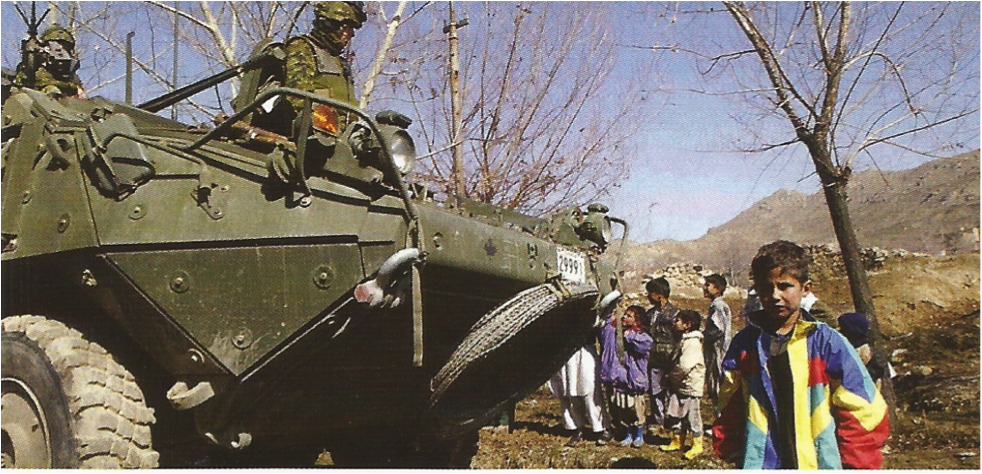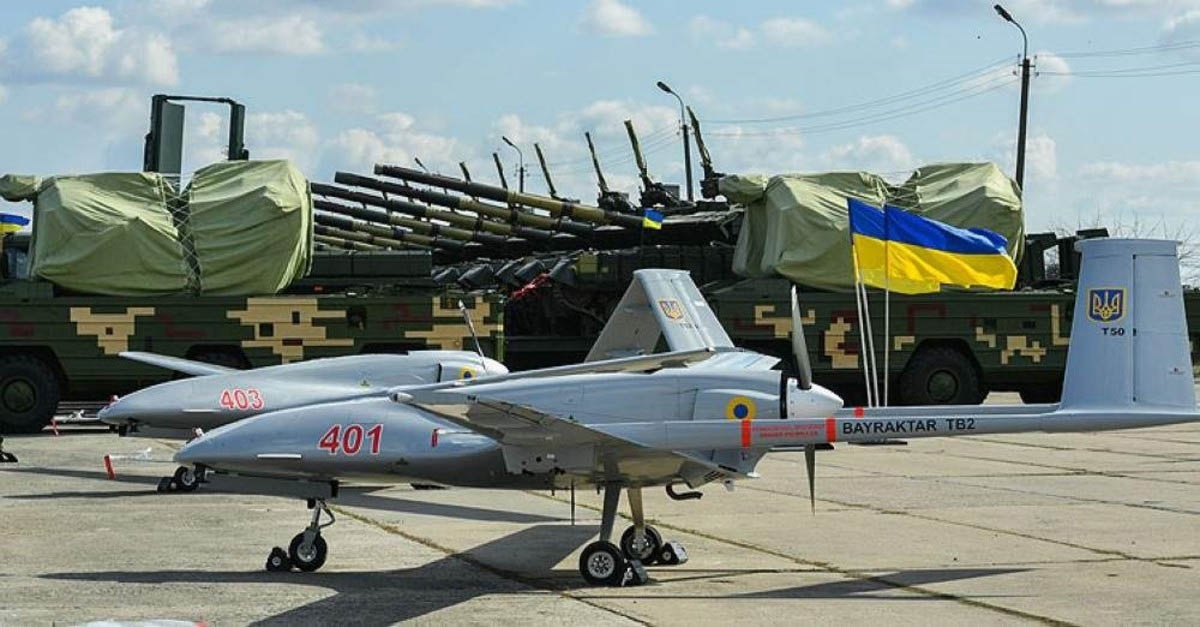
Trouble in a fool’s paradise: The problems with our Canadian Forces
By Dan Donovan and Jennifer O'Meara
The HMCS Chicoutimi was only days out of port on its maiden voyage when disaster struck. An onboard fire would leave one sailor dead and an entire crew bobbing in the North Atlantic for days as they waited for a towline to take them back to port. Typically the national media went into overdrive on the story with blow-by-blow accounts of the state of the submarine until it was finally in bay in Scotland.
The Chicoutimi tragedy serves as a metaphor for the Canadian Forces as a whole. The personnel were top shelf, highly motivated and trained, and committed to their jobs. The actual submarine was a second-hand buy from the British Navy, which required a substantial refit or "Canadianization" to even get it seaworthy. The commanders in the military thought they had a good deal — because they are forced to make decisions by political masters based on what is a good deal rather than what is good for the military — and even if they didn't, they had the attitude of "if you've got a lemon, suck on it." Their political masters couldn't care less other than to show up at the funeral and express how horrible it all was that such a good sailor, family man and father as Lieut. Chris Saunders had died. No mention of course that his tragic death might in any way be tied to the politicians' continued and inexcusable cost-cutting and downsizing of the Canadian Forces.
That the Liberal government has been loudly criticized for the neglect and deterioration of the Canadian military is not new. What is new is the growing sense of outright anger that is starting to be levelled at politicians like Paul Martin and Bill Graham when they make irresponsible decisions about the Canadian Forces and then have the gall to show up at military funerals afterwards. Within a week of the Chicoutimi tragedy, Minister of National Revenue John McCallum was already suggesting that the Canadian Forces would need to sustain yet further cuts —amputation would be a better word. So much for the "genuine sincerity" expressed by Martin and Graham at the funeral. "Genuine insincerity" is more like it.
The contemporary Liberal legacy for the Canadian military is one of chronic underfunding, delayed procurement policies that have cost lives, and an overcommitment of our troops resulting in such a severe strain on our fighting men and women that they have had to be placed in an "operational pause" period just to cope with their current duties. The chronic and continued shortchanging of the Canadian Forces has been juxtaposed by over-the-top PR announcements by Martin about "new spending" for the military. In fact, since becoming Prime Minister, Martin has made the same "new" announcement about spending in the military on six different occasions, without a dime being spent for what's left of the troops.
Canadian soldiers in Haiti lacked the basic equipment to do the job, while troops in Afghanistan were exhausted. At home, a civil employee defrauded the Department of National Defence of $150 million over 10 years. An August 2004 audit reported more than $80 million in improper accounting practices at DND in the previous two years. The Canadian military is the most civilian-heavy, bureaucratized military in the world, with an average of one civil servant for every three soldiers. Many military managers, academics and management professionals have suggested that civilians employed by the department should be cut by 80%. The fact is that there are too many chiefs and with that comes a whole lot of budget waste. Estimates are that if DND cuts its civilian component by 50%, the yearly savings would be about $4 billion. By most accounts, the department wouldn't notice the loss of this staff.
Politically, the military suffers even more. The Conservatives have lost most of their credibility on defence matters because they seem to be pro-military and vociferous in their support of the American government's worldview at any cost. In this regard, the Conservatives have drifted from the mainstream of Canadian public opinion. They interpret public support for our soldiers as support for a Canadian military policy that mimics the Bush Doctrine. This is a misguided interpretation of the Canadian view and rears its head when the Liberals constantly dismiss Conservative defence policies.
Conservatives wanted Canadian troops to go into Iraq; they want to be in line with the Americans in the War on Terror. They want Canada to join the U.S. Missile Defence Program, which most Canadians do not support.
When it comes to the New Democratic Party and issues related to defence, most would agree that its views are inconsequential only because NDP leader Jack Layton has made it that way. Layton does not seem interested in having a serious discussion on defence, but prefers to rail against DND at every opportunity. However, he is the first to support any hare-brained idea that would put our troops in harm's way if the United Nations suggests it's a good idea. Canadians didn't want to go into Iraq, don't support missile defence and don't want to be toe-to-toe with George W. Bush's coalition to fight terror. At the same time, they don't share Jack Layton's dismissive view of the military.
That leaves the governing Liberals; their policy is predicated not on what is good defence policy for Canada, but rather on what is the cheapest and least offensive way to meet commitments without offending the United States and without paying too much. Liberals MPs and advisers are philosophically opposed to military spending. The Liberals don't support missile defence in principle but will support it if needed, because they don't want to further upset the Americans. A senior Martin adviser summed it up this way: "Missile defence is really not a well thought-out plan. Why spend billions of dollars to stop incoming missiles from North Korea or Iran when terrorists could plant a suitcase-size nuclear bomb in a port and blow up a city? We should be spending all that money on vulnerable ports and other entry points. But it we don't support this — if Bush wins, then we will be in bigger trouble." So for the Liberals, the policy will be missile defence if necessary, but not necessarily missile defence.
Further evidence of the Liberal attitude on defence was displayed at the Parliamentary Defence Committee Meeting to review the HMCS Chicoutimi incident. It was clear that most Liberal MPs on the committee were out of their depth and lacked even a basic understanding of the military. One MP asked if the diesel subs operated under the icecap, while another seemed unaware of the importance of surveillance matters related to Canada's coasts. Sadly, as the MPs met to grill DND brass over the HMCS Chicoutimi incident, most weren't even aware of the type of sub it was, why Canada purchased the subs or the subs' essential role in our nation's defence. The MPs expressed the appropriate amount of indignation and remorse for the cameras, and keenly looked for someone at DND to blame. At the end of the day, their ignorance spoke volumes. The blame for the tragic incident lay with their woeful ignorance of military matters.
The continuing reorientation of Western navies is resulting in the increasing availability of modern, well-maintained submarines at often "bargain" prices, according to research published by naval market analysis and advisory group AMI International. In July 1998, Canada signed the lease-to-buy contract to acquire the four Upholders, renamed the Victoria Class, for a total project cost of $812 million Buying second-hand is likely to mean accepting some compromise in function and performance. A major consideration when acquiring used vessels is their operational status and materiel state. Once a ship is taken out of service and shut down, as the Victoria Class submarines were, its condition will deteriorate rapidly without preventive maintenance. The reactivation program had to restore the submarines to like-new condition before they could become operational. The Navy, with countless acceptance inspections as surety, took the decision to sail her to Canada. If the Navy had any indication that more than normal risk was involved, it would not have done so. The Navy was pleased at first when, instead of an unaffordable program of $2.5 billion to $4 billion, it was offered four slightly used Upholder Class submarines. Unfortunately, several years elapsed before negotiations were completed and the Government of Canada could be convinced that this was indeed a good deal. All that time, the used subs were rusting in drydock.
This delay caused the reactivation program to become increasingly problematic. It ran behind schedule and over budget. The May 2003 report by the Chief of Review Services found the cost of operating and maintaining the four submarines was 25% higher than anticipated. However, a build-new program would probably not have made submarines available more quickly or less expensively.
It is still too early to determine whether or not the second-hand submarines were a good idea. According to Alain Pellerin, executive director of the Conference of Defence Associations, the larger issue is how high a priority defence is for the federal government.
"It's fine to cry big crocodile tears, but they should have looked at this a long time ago," Pellerin said.
A safety board will carry out a thorough investigation into the fire aboard the HMCS Chicoutimi and the death of Lieut. Saunders.
In August, Canadian and American military representatives met to amend the North American Aerospace Defence Command (NORAD) agreement. The amendment authorizes NORAD to make its missile warning function available to U.S. commands for ballistic missile defence (BMD). It authorizes Canadian military personnel assigned to NORAD to participate in BMD-related activities and operations. The Martin government is saying that the final decision on BMD has not yet been made while Defence Minister Bill Graham says a decision will be made this fall with parliamentary input. This tiptoeing around the decision is likely because the minority Liberal government needs the support of the NDP and Bloc Quebecois, which oppose the missile defence plan. Canada is already involved in missile defence, despite having not made the decision to outwardly support it. The technology does not currently exist for the "weaponization of space:' The current BMD system offers detailed surveillance, so detailed it could be used to map natural resources.
"If you choose not to know, someone is going to take advantage of it," warns Col. Howard Marsh (Ret.), senior defence analyst for the Conference of Defence Associations. "The Americans are very good at taking advantage of those who don't know."
Many observers believe that only by choosing to join the missile defence agreement will Canada have a voice at the table to determine how the defence system impacts Canadian territory and claims to sovereignty of the Far North. If Canada does not participate in the plan, the U.S. will unilaterally make choices about the security of Canadian territory. Many Canadians feel passionately that joining the program will lead to the weaponization of space sooner rather than later. Information appearing on the U.S. Missile Defence Agency Website seems to confirm the intent to develop weapons for the space shield program, leading to an arms race in outer space. With such polarized opinions, it is no wonder that the Government of Canada is reluctant to take a hard stance either for or against the missile defence agreement.
In the June 2004 election campaign, the Liberals talked about creating a 5,000 person peacekeeping brigade. In the October Speech from the Throne, the government changed the promise slightly, pledging to recruit 5,000 additional regular forces and 3,000 reserve personnel. The peacekeeping brigade would have been created from scratch; it would have taken a long time to get the brigade up to speed and very expensive. The new pledge to recruit additional forces for the Army is hoped to be a less expensive option.
Some say that with the Canadian Forces so heavily committed abroad, not enough experienced officers are available to train the new recruits. It may be 2012 before the recruits can take some of the pressure off the military.
"There is no one back home to train the new people and the instructors are being sent out," Col. Marsh explains. "They put operations ahead of training. Recruiting doesn't solve the problem."
Today, there are more than 20,000 civilians working in the Canadian Forces in support roles and senior positions. After the Cold War, drastic cuts were imposed on the Canadian military — the so-called "peace dividend." At the same time, the number of senior management positions, filled by civilians, was doubled. The national defence initiative known as the Canadian Forces Contractor Augmentation Program (CANCAP) means that Canada now has hundreds of civilians doing many of the jobs once performed by career soldiers. The common belief is that a civilian is cheaper than someone in uniform.
Many people in the military think that civilians are ultimately more expensive because the forces lose a lot of flexibility. Civilians can only be worked 37 hours a week. If a unit is assigned abroad, civilian clerks will not go with them. It used to be that even the cook for a unit was an officer who could be counted on to help defend the camp if necessary. Today, a contract has to be worked out with a private company. This means a loss in the flexibility of the position; this lack of flexibility can become quite expensive.
"You can work a soldier longer, he doesn't have a union and he isn't paid by the hour," Col. Marsh said.
These contentious issues in the Canadian Forces have many involved in the military calling for a broad public policy review. They criticize the fact that current defence policy was drafted by bureaucrats behind closed doors. Now that it has been-drafted, they want the government to listen to the public's opinions on what type of military (if any!) they want in the future.
"If the government says its first priority is its citizens' security, then there should be a broad public policy review," Pellerin concludes.








